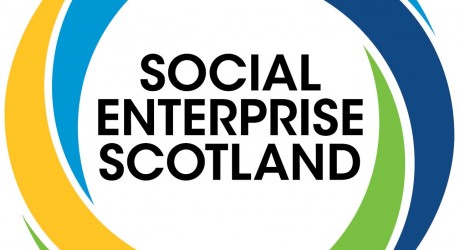WE’VE seen a big growth in media coverage of social enterprise in Scotland over the past few years.
Social enterprise business innovation and good news stories, as well as referring to an organisation as a ‘social enterprise’, has increased across broadcast, print and new media.
We warmly welcome this increased awareness and Social Enterprise Scotland is here to assist you with any requests for information, comment on stories or to write articles for publication.
To help with reporting we’ve written a short, one-page media summary about social enterprise in Scotland, that clarifies definitions and other issues and, hopefully, clears up any misconceptions about what social enterprise is all about.
Of course, if more information or clarity is needed, then do get in contact with me at any time!
Also… in early September, we’ll be launching the first ever big, comprehensive mapping research of social enterprise in Scotland, the social enterprise census results – I’ll keep you updated.
Social enterprise – FAQs for Scottish journalists
What is a social enterprise? Social enterprises are independent businesses that exist to deliver a specific social and/or environmental mission. This could be employing homeless people, recycling waste or something similar.
They aim to make profit like any other business, but invest 100 per cent of it in their social purpose. Social enterprises in Scotland are ‘asset locked’ (all property, money etc. can only be used for a social mission). They’re a more ethical and sustainable way of doing business. Social enterprises are not charities that get most income from grants/donations and they’re not a business simply behaving ethically or an arms-length company of a public body.
What examples are there? Diverse examples include The Big Issue, The Wise Group, Social Bite, Divine Chocolate, Cornerstone, Kibble Education and Care, media co-op, Glasgow Housing Association, Isle of Eigg Heritage Trust, Link Group Ltd, the Eden Project, Capital Credit Union, The Grameen Foundation, Mondragon Corporation in the Basque Country and the Homeless World Cup.
Are social enterprises not-for-profits? No. All social enterprises aim to make profit, just like any other business. The only difference is that they invest 100 per cent of profit into a social and/or environmental mission.
What’s the difference between a social enterprise, a social business and a social firm? Sometimes different phrases are used but, for clarity, we use the specific term, ‘social enterprise’. With no legal definition, this helps distinguish authentic social enterprises. A social firm is a specific type of social enterprise that helps people with disabilities or other similar challenges. We also use ‘more-than-profit’ and support the Voluntary Code of Practice for Social Enterprise in Scotland.
How many social enterprises are there in Scotland and how big is their impact? We’re a relatively small part of the wider economy but growing. The last estimate of the number in Scotland is 3,500, though we believe this figure is much higher. See Scale as well as Substance – Social Enterprise in Glasgow and the more recent Scotland-wide Mapping Social Enterprise in Scotland. A first full, comprehensive mapping exercise will be completed in 2015. There are also local statistics from Social Enterprise Networks (SENs), such as Dundee and Edinburgh.
How is Scotland doing in terms of social enterprise? Scotland is leading the way, internationally, in terms of social enterprise support and development, sometimes referred to as ‘the Scottish model’ of doing business. There’s currently strong policy support from the Scottish Government and Parliament and all political parties at Holyrood.
What models of social enterprise exist? The more-than-profit approach is used by many organisations, of every size, operating in every corner of Scotland and in many sectors of the economy. A social enterprise is often just a Company Limited by Guarantee with an ‘asset lock’ and social mission. It could also be a registered charity, Scottish Charitable Incorporated Organisation (SCIO), Co-operative, Mutual, Social Firm, Community Interest Company (CIC), Development Trust, Credit Union or Housing Association (Registered Social Landlord / RSL). A social enterprise can be a combination of these models. Together, they make up Scotland’s social enterprise movement. Read more about definitions.
Read the complete guide to social enterprise in Scotland and see our Live 24/7 Twitter newsfeed – news stories direct from over 300 Scottish social enterprises.
Please get in contact with questions or requests for articles or commentary. We’re keen to hear from local as well as national print, broadcast and new media outlets:
Duncan Thorp, communications officer, Social Enterprise Scotland, 0131 243 2654 / 07501 221 581, duncan.thorp@socialenterprisescotland.org.uk, Thorn House, 5 Rose Street, Edinburgh, EH2 2PR.
Social Enterprise Scotland is a Company Limited by Guarantee: SC294227.
MEDIA RELEASE issued by Social Enterprise Scotland. You too can post your story ideas for journalists (aka press or media releases), on allmediascotland.com. Email here for more information.
Check out twitter.com/nonstopstories for your very own media releases feed…
To catch up on all the media releases recently posted on to allmediascotland.com, you need only click the link icon that you see towards the bottom right of our two media release ‘gateway boxes’.
 It’s this icon, here. It’s your route straight into the rich archive.
It’s this icon, here. It’s your route straight into the rich archive.
—
Social Enterprise Scotland contact details…
Contact: Duncan Thorp
Phone: 01312432650
Email: news@socialenterprisescotland.org.uk
Website: http://www.socialenterprisescotland.org.uk






